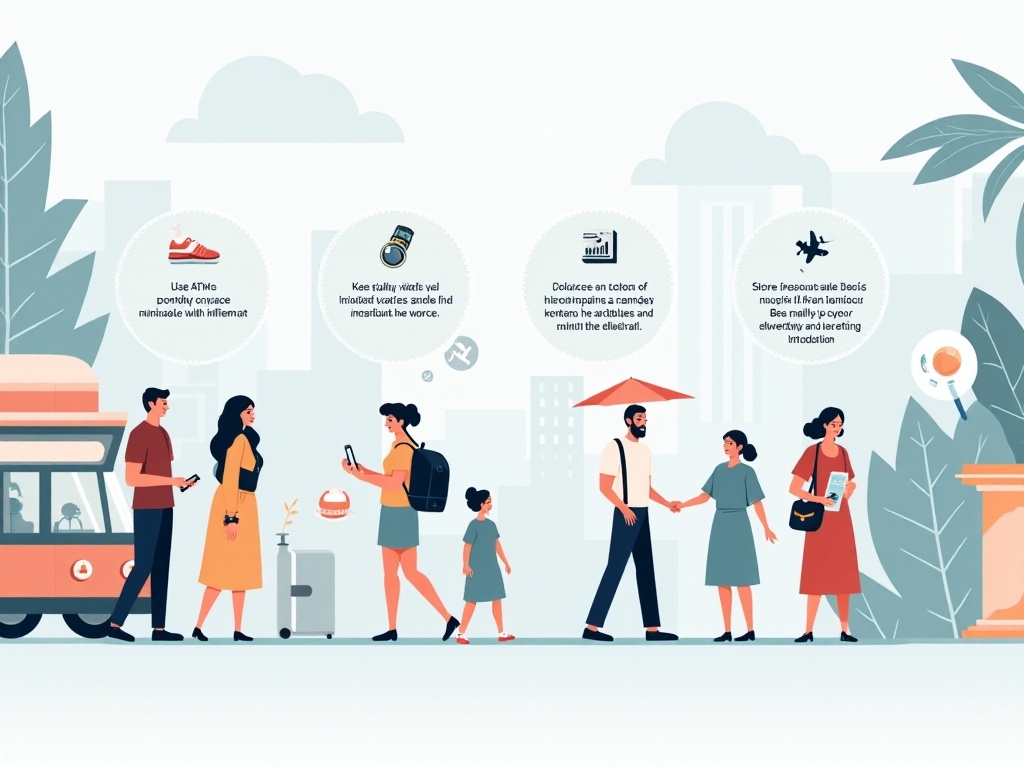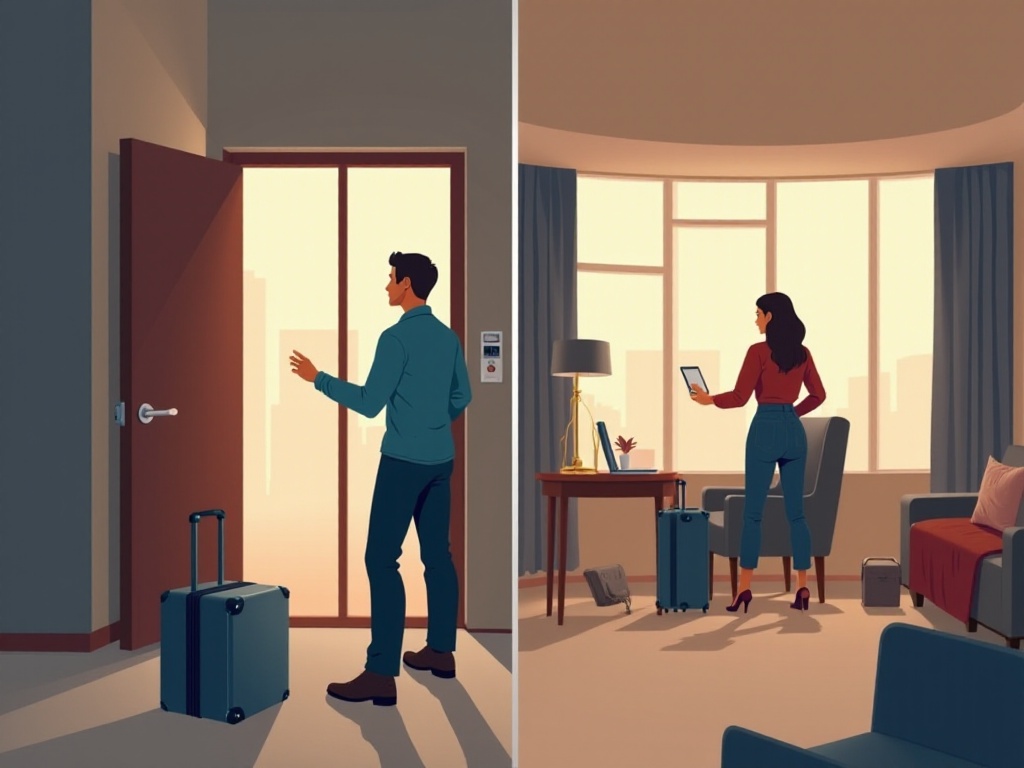
Introduction
Hi there, I'm Little V, a travel blogger who has been on the road for over a decade. It warms my heart to see more and more Gen Z travelers starting to venture out on their own. As a seasoned traveler who has been all around, I know that while solo travel offers great freedom, there are many safety concerns to keep in mind. Today I'd like to share some safety tips I've learned over the years to help you avoid potential pitfalls.
All About Accommodation
When it comes to travel safety, accommodation is absolutely crucial. I remember my first solo trip when I tried to save money by booking a cheap hotel on Taobao. The place had outdated facilities and terrible soundproofing. I was tormented all night by noisy neighbors and mysterious odors, continuing my journey the next day with huge dark circles under my eyes - it was a nightmare. That experience taught me that you shouldn't cut corners on accommodation - safety and comfort should be the top priorities.
Today's major booking platforms all have detailed user review systems. I suggest carefully reading reviews when choosing accommodation, especially those from the past six months. One and two-star reviews often reveal the most genuine problems with hotels, such as security issues, staff attitudes, and price scams. I've seen hotels with glamorous lobbies but broken door locks in the rooms - you should absolutely avoid such places no matter how tempting the price.
Besides reviews, location is also important. I usually choose hotels in city centers or near transportation hubs, as these areas tend to have better security and are safer even when returning late at night. Be cautious about super deals in remote alleys or poorly lit streets.
Safety checks after checking in are essential. First, verify that the door locks work properly, including the security chain and peephole. I make it a habit to check all doors and windows in every new room to ensure they close and lock properly. Once at an international chain hotel, I discovered the window wouldn't close properly and cold air was rushing in - when I asked to change rooms, I learned the window frame was warped, which is common in older buildings.
Next, check if all safety equipment is in place. This includes verifying that smoke detectors work, emergency exit signs are visible, and emergency items like flashlights are provided. I pay special attention to bathroom anti-slip measures since many accidents happen there. If the floor is too slippery, you can request anti-slip mats from the front desk.
Securing valuables is another crucial aspect. Most hotels now provide in-room safes, but test them before use. I recommend not keeping all valuables in one place. For example, put your passport and most cash in the safe, but carry some pocket money and copies of documents with you, so you're not stranded if there's an issue with the safe.
Another crucial point is never letting strangers know your room number. Stop front desk staff if they announce your room number loudly during check-in. In elevators, let others press their floor buttons first. If you encounter suspicious people in the hallway, pretend to walk past your room and return later.
Regarding key card safety, many young people might think it's trivial, but it's actually a major concern. Losing or having your key card switched can create security risks. Keep your key card on you, not in your bag. If you lose it, immediately notify the front desk to deactivate it and get a new one. When checking out, return the card to the front desk rather than discarding it anywhere.
Female solo travelers need to be especially careful with accommodation safety. Consider choosing women-only floors or hotels with security systems. If budget allows, opt for well-known chain hotels, which usually have better security management. At night, close the curtains and always check the peephole before opening the door. If you feel unsafe, don't hesitate to contact the front desk or police.
The Battle to Protect Your Wallet
Regarding financial safety, the first habit to change is carrying large amounts of cash. I once met a Chinese girl in Europe who carried over 10,000 in cash, which was stolen at a tourist site. She nearly got stranded abroad and her whole trip was ruined. With today's advanced payment methods, I recommend using credit cards or mobile payments and only carrying enough cash for daily needs.
When using ATMs, location choice is crucial. I've identified several safer ATM locations: inside bank branches, in large shopping malls, and at airports or train stations. These places have high foot traffic plus security guards and surveillance systems. Conversely, avoid standalone street ATMs, especially at night when there are few people around.
There are important precautions when withdrawing money. First, check if the ATM has any card skimmers or hidden cameras - gently wiggle the card slot to check for anything unusual. Shield the keypad with your other hand when entering your PIN to prevent camera recording. After withdrawing, make sure you've retrieved your card and take or destroy the receipt - don't leave it at the ATM.
I always stick to the principle of dispersing funds. I typically divide money into three parts: some in my wallet for daily use, some in the hotel safe, and some in other bank accounts. This way, if something unexpected happens, it won't affect the entire trip.
When traveling abroad, I recommend having multiple credit cards from different banks. Sometimes one card might get frozen or become unusable for various reasons. I've experienced having my credit card mysteriously locked by the bank's system as a suspicious transaction - thankfully I had backup cards. Also, remember to call your bank before departure to inform them of your travel plans to avoid cards being frozen for suspected fraud.
Regarding payment safety, be particularly aware of exchange rates and fees. When using cards abroad and merchants ask whether you want to pay in local currency or yuan, always choose local currency. The merchant's dynamic currency conversion rates are usually worse than bank rates, potentially costing you 10% or more extra.
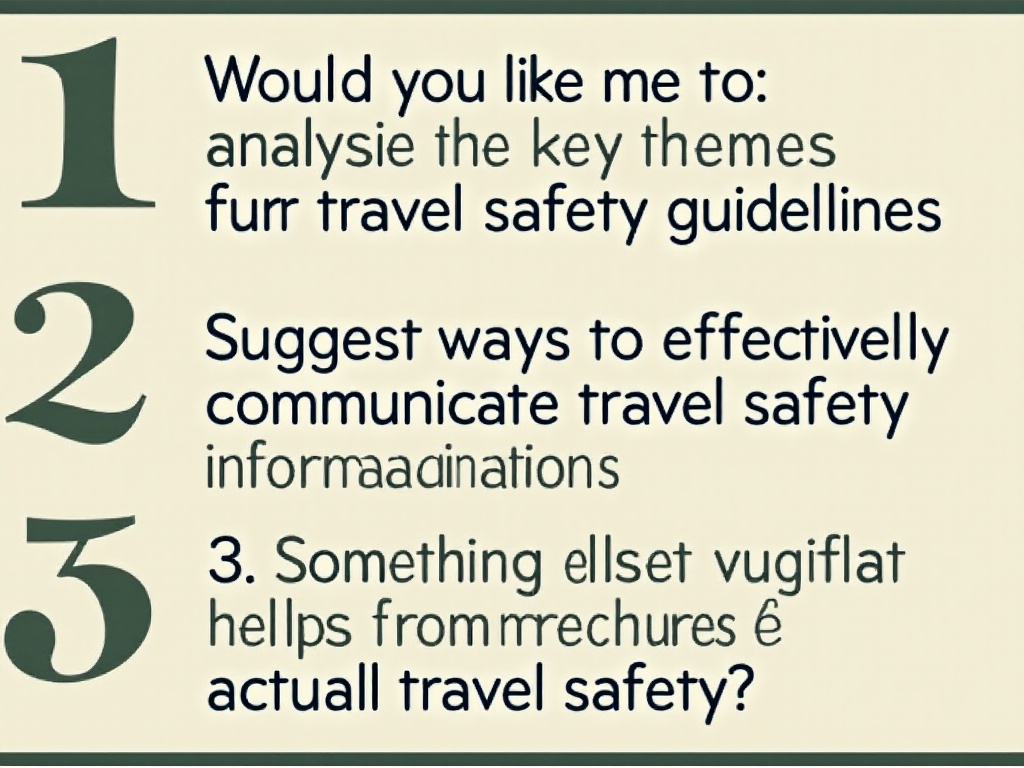
Managing Valuable Items
Today's young travelers typically carry various electronic devices like cameras, laptops, tablets, etc. These items are not only valuable but often contain important personal information. So you must be extra careful when using and storing these devices.
First, usage precautions. Don't walk around with your camera hanging from your neck advertising it - keep it in your bag when not in use. Same with phones - don't constantly hold them while walking, as this makes you an easy target for theft and prone to accidents. I've seen too many people crash into poles or trip because they were looking at their phones while walking.
Be aware of your surroundings when taking photos. At tourist spots, people might offer to take photos for you - stay alert in these situations. I suggest choosing reliable-looking people if you need someone to take your photo, like tourists with families or official guides. Before handing over your camera, take a photo of the person with your phone so you have a record if something goes wrong.
Choosing the right bag is crucial. There are many anti-theft bags designed for travel, typically featuring hidden zippers, cut-proof materials, and RFID blocking layers. While these bags might cost more than regular ones, they're worth investing in for security. I've used several anti-theft bags and found them effective, especially designs that completely hide zippers, making it impossible for thieves to access.
How you wear your bag matters too. In crowded places like subway stations, tourist sites, and shopping malls, wear your bag in front. The back is a blind spot that's easy for thieves to target. With backpacks, keep important items in inner pockets against your body, using outer pockets only for non-valuable items like maps or tissues.
For document management, I recommend multiple backups and minimal carrying. Always photograph or scan important documents like passports and ID cards, saving copies on your phone and cloud storage. Prepare several physical copies before departure, storing them in different places. I once lost my passport abroad - having backup copies helped the consulate quickly issue me a temporary passport.
Don't neglect electronic device data security. While traveling, avoid using public WiFi, especially for sensitive operations like online banking or payments. If you must use public networks, use a VPN. Also, set password locks on devices so others can't easily access your personal information if they're lost.
Safety Awareness is Critical
Whenever I arrive somewhere new, I spend time learning about local conditions, including security situations and common scams. This information usually comes from local police websites, travel forums, or other tourists' experiences. For example, in Paris, thieves often use specific tactics: pretending to find and gift you a ring, or distracting you with surveys. In some Southeast Asian locations, people might enthusiastically invite you to their home, then force you to shop or gamble. Knowing these tricks helps you avoid them.
Stay cautious of friendly strangers. I know Gen Z tends to be warm and trusting, but keep your guard up while traveling. If strangers start conversations, especially asking personal questions like where you're staying or if you're traveling alone, give vague answers and don't reveal too much personal information.
Emergency contacts must be prepared in advance. Every country has different emergency numbers - 911 in the US, 999 in the UK, 110 in China. I save these numbers in my phone and screenshot them to my photo gallery in case my phone dies. Also save local embassy contacts and insurance company hotlines.
Avoid traveling late at night when possible. If you must go out at night, stick to well-lit main roads with high foot traffic. Many young people like taking photos in remote places at night - this is really dangerous. I know a photographer who was robbed of tens of thousands worth of equipment while shooting stars in a remote location at night.
Traffic safety is also crucial. When renting cars abroad, verify insurance coverage and strictly follow local traffic rules. When using ride-hailing apps, verify license plates and driver information before getting in. If the driver seems suspicious, pretend to make a phone call telling someone your location.
Code of Conduct
I must emphasize drinking safety. I completely understand young people wanting to try various special local drinks, but know your limits. Many foreign alcohols are stronger than domestic ones - if you don't know your tolerance, trying them carelessly can lead to problems. Being drunk not only makes you a target but might lead to dangerous behavior.
If you want to try local specialty drinks, do so at proper bars or restaurants, preferably with friends. Never accept drinks from strangers or leave your drink unattended. There have been many cases of drink spiking abroad. If you feel drunk, immediately call a driver or taxi home - never risk driving yourself.
Be careful what travel photos you post on social media. I see many young people sharing their itineraries in real-time, posting locations, showing hotel room numbers - these behaviors can create security risks. Consider posting photos after leaving a location - you can still share travel joy without exposing your whereabouts.
Particularly important: don't show off wealth on social media. Posting luxury goods, high-end hotels, shopping hauls - these really invite unnecessary trouble. I've seen people tracked to their hotels and nearly robbed after posting shopping photos. Being low-key makes travel safer and more enjoyable.
Be safety-conscious when taking photos at tourist sites. Young people often do dangerous things for good photos - standing on cliff edges, climbing into restricted areas, posing on railroad tracks, etc. These actions are extremely dangerous, and people have accidents every year doing this. No photo is worth risking your life.
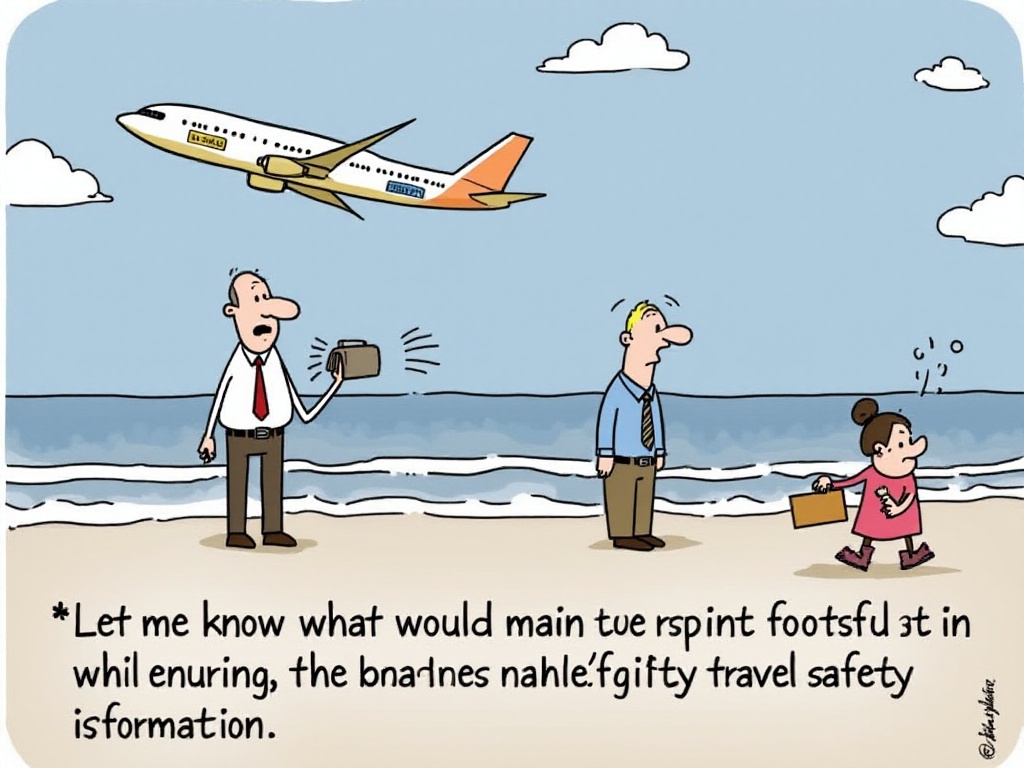
Final Words
Safety is always the most important aspect of travel. Through this article's tips, I hope to help you travel more securely. Of course, I'm not trying to make you fearful, but rather hoping you can enjoy travel while knowing how to protect yourself.
Remember, no preparation is more important than staying alert. Always remain vigilant while traveling and trust your instincts. If something feels wrong about a place or situation, leave immediately - don't take chances.
Finally, I wish every young solo traveler a safe, happy journey home with plenty of memories. Travel isn't just about seeing beautiful places, but learning to grow and protect yourself along the way. Let's all be cool yet safe travelers!
If you encounter any safety issues while traveling, feel free to discuss them. After all, sharing experiences helps us all improve and makes travel more wonderful.
Next
Essential Safety Guide for Solo Female Travelers in 2024: From Hotel Booking to Scam Prevention
A comprehensive guide covering travel safety aspects including accommodation security, personal belongings protection, and behavioral safety. Provides practical advice on lodging preparation, valuables management, document security, and scam prevention for travelers
Safety Guide for Solo Female Travelers Abroad: A Veteran Travel Blogger's 10 Years of Experience
A comprehensive travel safety guide covering pre-trip preparation, personal security, accommodation safety, and emergency readiness. Offers practical safety advice and best practices for travelers, from accommodation planning to fraud prevention
First Time Traveling to Japan Alone? Don't Miss These Essential Preparations! A Comprehensive Guide
A comprehensive guide covering essential travel safety preparations, including document management, luggage security, accommodation safety, and personal property protection, helping travelers minimize risks during their journey.
Next
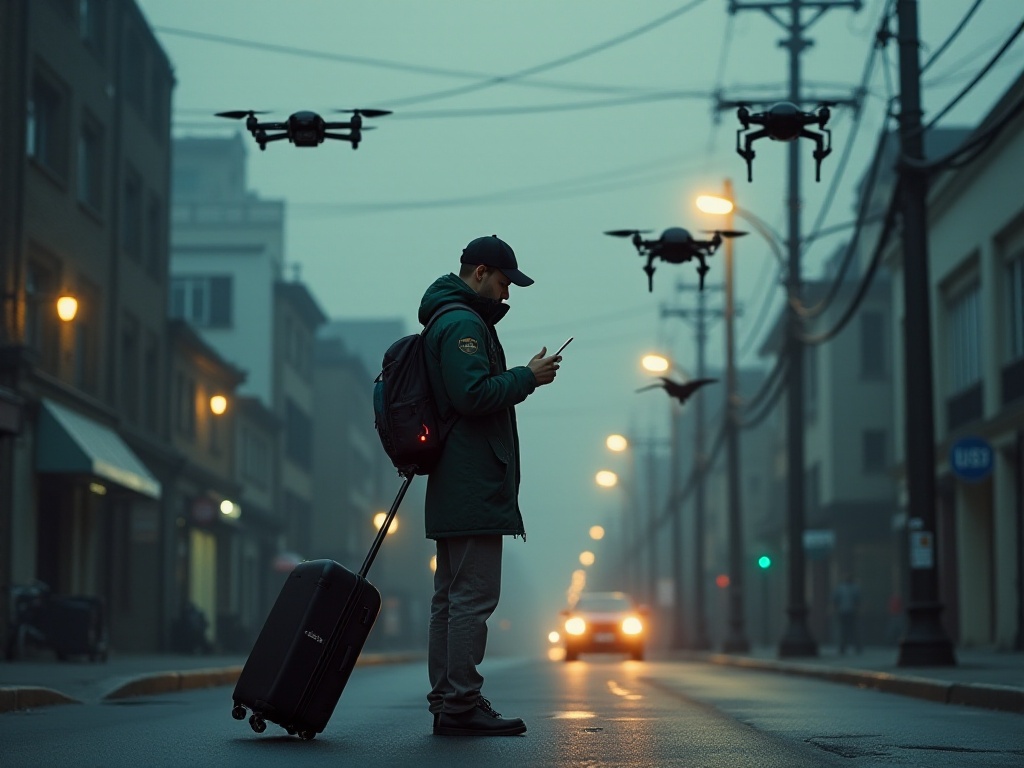
Essential Safety Guide for Solo Female Travelers in 2024: From Hotel Booking to Scam Prevention
A comprehensive guide covering travel safety aspects including accommodation security, personal belongings protection, and behavioral safety. Provides practical advice on lodging preparation, valuables management, document security, and scam prevention for travelers
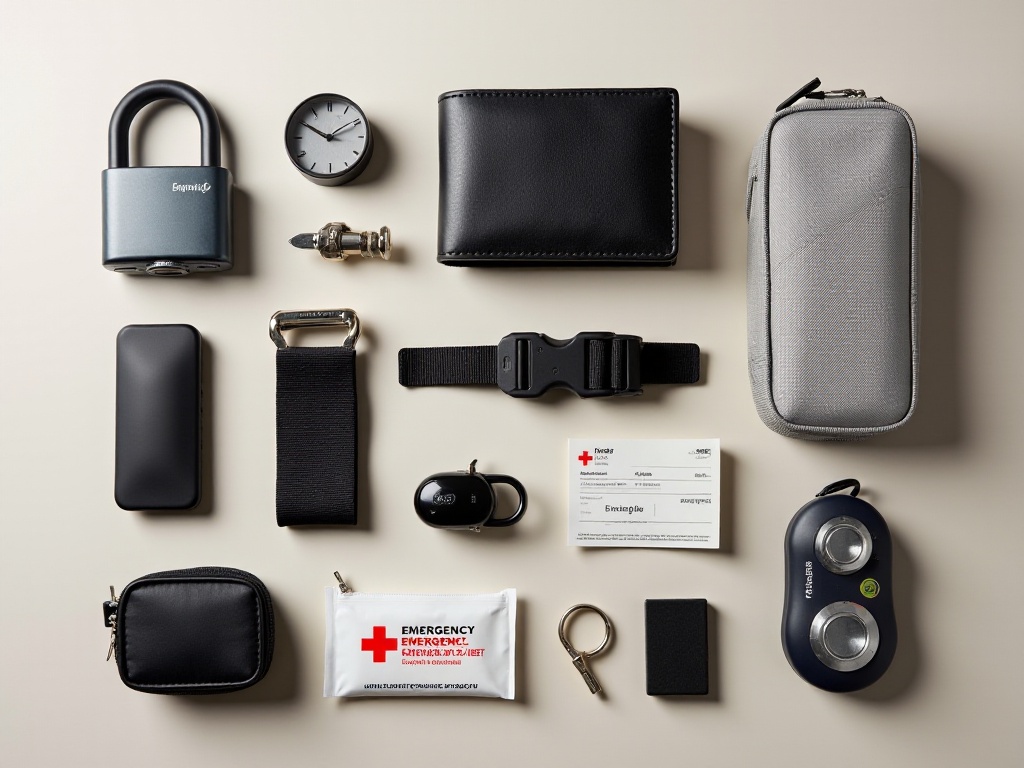
Safety Guide for Solo Female Travelers Abroad: A Veteran Travel Blogger's 10 Years of Experience
A comprehensive travel safety guide covering pre-trip preparation, personal security, accommodation safety, and emergency readiness. Offers practical safety advice and best practices for travelers, from accommodation planning to fraud prevention
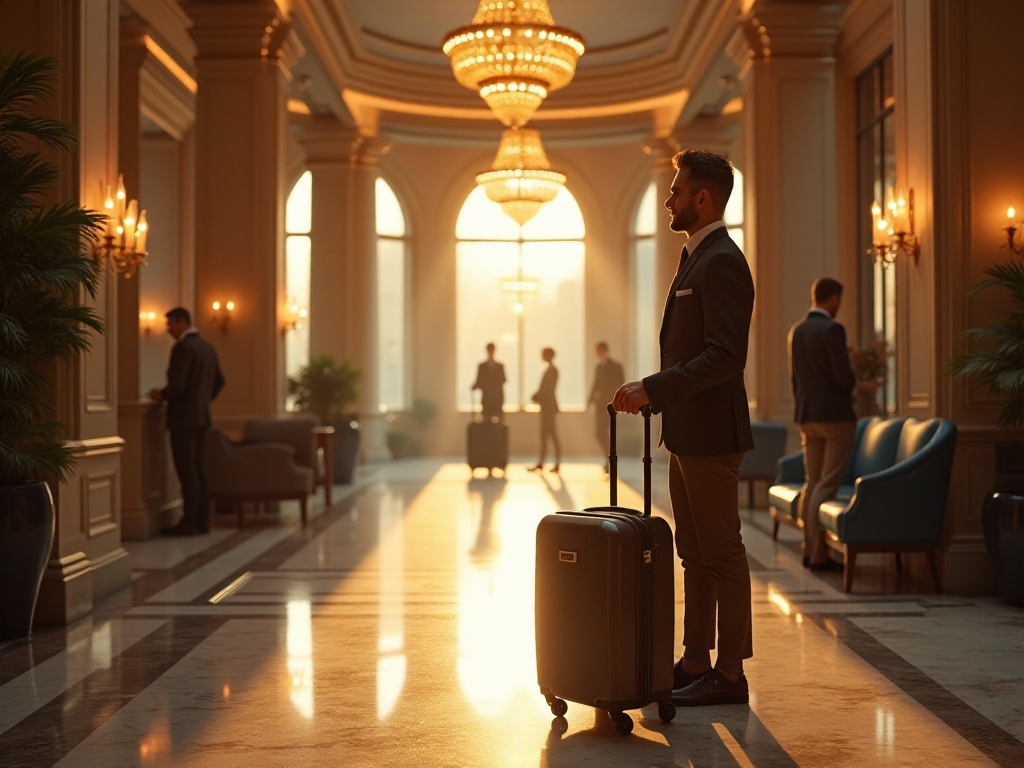
First Time Traveling to Japan Alone? Don't Miss These Essential Preparations! A Comprehensive Guide
A comprehensive guide covering essential travel safety preparations, including document management, luggage security, accommodation safety, and personal property protection, helping travelers minimize risks during their journey.

